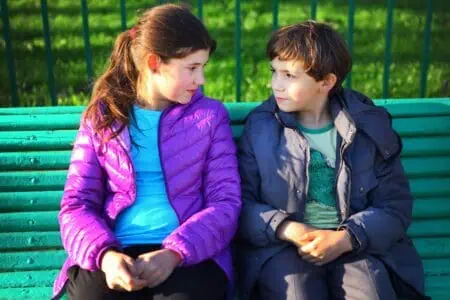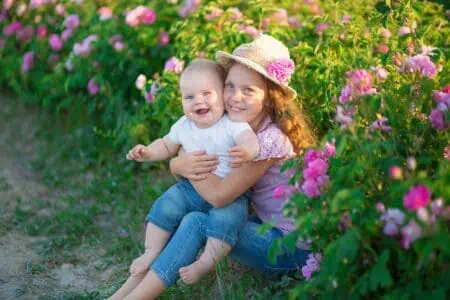The Dominican Republic is known for beautiful sunny beaches, dynamic culture, and — of course — Caribbean rum. Dominican last names are just as culturally diverse as its people. Do you need a clearly defined surname list denoting Spanish heritage, popularity, and uniqueness?
We’ve done the work for you, so all that’s left to do is explore our list of 250 Dominican family names. The list varies from super popular to extremely rare and everything in between, all clearly and concisely arranged for your browsing pleasure.
90 Traditional Dominican Last Names
Discover the most famous Dominican surnames, including their meanings and origins.
- Abreu – originally a Portuguese surname linked to the ancient house of Normandy near Évreux, France.
- Acosta – derives from the Spanish “encostas,” given to someone living near the seashore or the mountains.
- Aguilar – for those “from Aguilar or Aguilas,” based on the Latin “aquilare,” meaning “haunt of eagles.”
- Alba – comes from the Latin “albus,” meaning “white” for a light-complexioned person.
- Alvarez – means “son of Alvaro” in Spanish and is associated with the Visigoths clan.
- Arias – refers to the Spanish male name Ares and relates to Arias, meaning “lion” or ‘superior.”
- Batista – among Dominican last names with roots in medieval Latin as Baptista, for John the Baptist.
- Bello – means “handsome” in Spanish and Italian, from the Latin “bellus.”
- Beltran – also a male name composed of the Germanic “berht,” meaning “bright” and “hramn,” meaning “raven.”
- Brito – the Portuguese equivalent to the surname Stone, denoting “resilient” and “strong.”
- Castillo – a Spanish geographical surname for someone living “by the castle or fortified building.”
- Castro – from the Latin “castrum,” meaning “castle” or “fortress,” famous for Cuban leader Fidel Castro.
- Chaves – describes various Portuguese and Galician place names from the Latin “clavis,” meaning “key.”
- Colon – means “dove” in Spanish, based initially on the Latin “colomba.”
- Cruz – means “cross” in Spanish, referring to the Christian cross or a topographical crossroads.
- De la Cruz – means “of the cross” in Spanish and is linked to the cross in Catholicism.
- De Leon – one of several geographical Dominican surnames, which describes those from the Province of León.
- Delgado – means “thin” or “slender” in Spanish as a nickname for a skinny person.
- Del Toro – means “of the bull” and is a Spanish occupational name for a bullfighter.
- Díaz – a Spanish patronymic form of Diego taken from the Latin “dies,” meaning “days,” which means “days.”
- Diego – the Spanish short form of Santiago, meaning “supplanter,” relates to the Latin Didacus.
- Dominguez – a Spanish patronymic name for a “son of Domingo,” meaning “Sunday.”
- Durán – a Spanish-Catalan variation of the French given name Durand, meaning “firm” or “enduring.”
- Espinal – denotes various places in Spain called Espinal, from “espina,” meaning “thorn.”
- Estrella – a common Spanish location name originating with the Latin “estrella,” meaning “star.”
- Feliz – a Spanish and Portuguese surname meaning “fortunate” and “happy.”
- Ferreras – a Spanish surname for someone living near a forge or ironworks; from the Latin “ferraria.”
- Figueroa – the name for many towns in Galicia, Spain associated with “figueira,” meaning “fig tree.”
- Flores – from the given name Floro, meaning “flower,” and the 15th most common Hispanic surname.
- Fortuna – means “chance” and “luck” in Italian and Spanish as a nickname for a gambler.
- Francois – a surname given to a “Frenchman,” originating with the Old French “françois.”
- Frias – from a place name in Burgos and Teruel, Spain, from “frío,” meaning “cold.”
- Fuentes – means “fountains” in Spanish as a plural form of “fuente,” meaning “fount spring.”
- Garcia – one of many Dominican family names originating in Spain from the Basque “gaztea,” meaning “young.”
- Gomez – also appears as Gomes and is a patronymic surname for the Spanish Gome, meaning “man.”
- González – means “son of Gonzalo” as derived from the medieval Gundisalvus, meaning “battle.”
- Guerrero – from the Spanish “guerra,” meaning “war,” as a nickname for an aggressive person or soldier.
- Guzmán – means “good man” in Spanish as a name for a nobleman serving in the military.
- Henriquez – a popular Spanish surname given to a “son of Henrique,” the Spanish form of Henry.
- Hernandez – dates back to 15th-century Spain and means “son of Hernando,” a variation of Fernando.
- Herrera – a Spanish occupational name for a blacksmith, from the Latin “ferrāria,” meaning “iron works.”
- Jiménez – means “son of Jimeno,” the Spanish form of Simon; it also means “gracious hearkening” and “snub-nosed.”
- López – a Spanish patronymic surname meaning “son of Lope,” from the Latin “lupus,” meaning “wolf.”
- Madera – means “timber” in Spanish; also for someone “from La Madera,” in Asturias, Spain.
- Martin – from the Latin Martinus, inspired by Mars, the Roman god of fertility and war.
- Martinez – a Spanish patronymic surname meaning “son of Martin” from the Latin Martinus.
- Matos – derived from Matz, a nickname for Matheus, originally meaning “gift of Yahweh” in Hebrew.
- Mendez – means “son or descendant of Mendo,” originally the Visigothic Hermenegildo, meaning “complete sacrifice.”
- Miranda – a Spanish and Italian girl’s name meaning “worthy of admiration.”
- Morales – a Spanish geographical name based on “moral,” meaning “mulberry tree.”
- Munoz – means “son of Muño,” meaning “hill” in Spanish, or “son of Nuño,” which means “ninth.”
- Nina – means “little girl” in Spanish and relates to the Peruvian-Quechuan “nina,” meaning “fire.”
- Núñez – means “son of Nuño,” meaning “ninth” in Spanish, associated with the Latin “nunnus,” meaning “grandfather.”
- Peña – refers to a “rock,” “crag,” or “cliff” as one of many Spanish geographical surnames.
- Peralta – made up of the Latin “pietra,” meaning “rock” and “alta,” meaning “tall.”
- Perez – means “son of Pedro,” the Spanish equivalent to Peter, appearing as Peres in Portuguese.
- Pinto – the name of a neighborhood in Madrid, Spain; also means “colorfully painted.”
- Quezada – a Spanish town in Andalucia and an alternate surname for the character of Don Quixote.
- Ramírez – means “son of Ramon” or “son of Ramiro,” meaning “wise protector.”
- Ramos – means “bouquet” or “branches” in Spanish and Portuguese.
- Reyes – refers to a “king” in Spanish, where it also means “royals” or “royalty.”
- Reynoso – based on the Latin “regis,” meaning “royal” and “rey,” meaning “king.”
- Rivera – a Spanish variation of “ribera,” given to those living near a “riverbank.”
- Riviere – a French-influenced version of Riviera, from the Old French “riviere,” meaning “river shore.”
- Rodriguez – means “son of Rodrigo” in Spanish and is ranked number one among Dominican last names.
- Rojas – based on places named Rojas in Spain, from the Spanish “rojo,” meaning “red.”
- Romero – means “pilgrim” in Spanish and originally referred to a “pilgrim to Rome.”
- Rosario – a Spanish surname linked to María del Rosario or Our Lady of the Rosary festival.
- Rubio – means “red” in Spanish, as a nickname for someone with red hair.
- Ruiz – taken from the Germanic Hrodric,” composed of “hrōd,” meaning “renown,” and “rīc,” meaning “powerful.”
- Salas – means “rooms” and “halls” in Spanish, referring to someone living in a manor house.
- Sanchez – means “son of Sancho,” based on the Latin “sanctus,” meaning “sanctified.”
- Santana – means “St. Anna,” first given to followers of Saint Ann, who presided over childbirth.
- Santos – a Spanish surname derived from the Latin “sanctus,” meaning “holy,” “blameless,” or “saint.”
- Sosa – from a region in Galicia, Spain known for its groves of willow trees.
- Tavarez – most notably occurs in the Dominican Republic and refers to a Spanish place name.
- Tejeda – the name of several Spanish towns that use the root “tejo,” meaning “yew tree.”
- Torres – given to someone who lived in or near a tower, from the Latin “turris.”
- Trinidad – a surname given to someone born on the feast of the Holy Trinity.
- Vaca – means “cow,” as a Spanish occupational name given to a cowherd.
- Valdez – after a Spanish place name called “Val De As,” meaning “valley of the ace (stream).”
- Valerio – a given name from the Latin Valerius, based on “valere,” meaning “to flourish.”
- Vargas – the plural form of the Spanish “varga,” which means “thatched hut” or “steep slope.”
- Vásquez – a Spanish surname meaning “son of Vasco,” originating with the Latin Velascus.
- Vega – means “dweller in the meadow” in Spanish, used for someone who “lives on the plain.”
- Veloz – means “fast” in Spanish as a nickname given to a quick person.
- Veras – from the Spanish “vera,” meaning “riverbank,” for someone residing near the banks of a river.
- Villa – describes an “outlying farmstead or settlement,” used for various Spanish locations beginning with “Villa-.”
- Villanueva – made up of the Spanish “villa,” meaning “estate” and “nueva,” meaning “new.”
- Xavier – a form of Javier, meaning “new house” and “bright,” associated with Francis Xavier.
80 Unique Dominican Surnames
These Dominican last names have a particular meaning and history in the Dominican Republic.
- Adames – a Spanish-Basque patronymic surname used for a “son of Adam.”
- Alcantara – a place name in Andalusia, Spain which also means “the bridge” in Arabic.
- Antigua – a common Spanish location in Gran Canaria or La Antigua; based on “antiguo,” meaning “old.”
- Aracena – associated with the Latin Aretius and the Spanish suffix “-ana,” meaning “villa of Aretius.”
- Aristy – among Basque-influenced Dominican surnames, from “areitz,” meaning “oak,” popular in the Dominican Republic.
- Aybar – used as a Basque first name, along with Eibar, meaning “oak tree.”
- Bobadilla – means “little silly thing,” from the Spanish “bobada,” a nickname for a naive person.
- Brea – is common in the Dominican Republic; originally a Galician name based on “brea,” meaning “footpath.”
- Burgos – given to someone from the Spanish town of Burgos; also means “fortress” or “borough.”
- Caceres – originally appeared as the medieval Spanish Cáceres, from “cacería,” meaning “game hunting.”
- Campos – taken from the Spanish and Portuguese “campos,” meaning “fields,” for a countryside dweller.
- Candela – means “candle” when referring to someone known for their spiritual or religious ways.
- Carpio – given to those “from Carpio,” in Valladolid, Spain, and also means “hill.”
- Cid – an honorary title for Islamic-Spanish rulers, from the Arabic “sayyid,” meaning “lord.”
- Collado – describes a “hill” or “mountain pass” in Spanish, from the Latin “collatum.”
- Concepcion – from the phrase Nuestra Señora de la Concepción, meaning Our Lady of the Conception.
- Corona – means “crown” in Spanish and Italian and “garland,” “chaplet,” or “diadem” in Latin.
- De Paula – a shorter form of Francisco de Paula, inspired by Saint Francis of Paola.
- Doñe – a Dominican variation of the French Doumer based on the female first name Dominique.
- Dume – one of several versions of the French Doumer; used in the Dominican Republic and Haiti.
- Encarnacion – means “incarnation” in Spanish and one of the epithets of the Virgin Mary.
- Espaillat – taken from the Catalan “espallar,” meaning “to separate the wheat from the chaff.”
- Espinosa – a Spanish geographical surname from “espina,” meaning “thorn.”
- Florentino – derives from the Latin Florentinus, from “florus,” meaning “blooming” and “flowering.”
- Garrido – a unique Spanish surname starting with G that means “handsome,” “beautiful,” or “elegant.”
- Gil – means “naive” or “innocent” in Spanish, “bullfinch” in Polish, and “joy” in Hebrew.
- Guerra – a Spanish nickname for a belligerent person or soldier that means “war.”
- Jaquez – a Spanish patronymic surname given to a “son of Jacob,” meaning “supplanter.”
- Javier – influenced by the Spanish St. Francis de Xavier; from the Basque “etxaberri,” meaning “castle.”
- Jerez – the name for several towns in the Badajoz and Cádiz provinces in Spain.
- Jorge – originated as the Latin Georgius and Greek Georgos, meaning “farmer” or “earth-worker.”
- Laureano – a male given name and surname taken from the Latin Laurentius, meaning “laurelled.”
- Lee – one of a few Dominican family names from Old English, meaning “clearing” or “meadow.”
- Lozano – means “good looking” in Spanish and is a Spanish pet name for an elegant person.
- Luciano – comes from the Latin Lucianus, based on “lucius,” which means “light.”
- Marmol – means “marble” in Spanish for someone from El Mármol, an occupational name for a stonemason.
- Marte – taken from Mars, the Roman god of war, from the Calabrian “marti,” meaning “Tuesday.”
- Melendez – dates back to the 5th-century Hermenegild, meaning “entire present.”
- Mesa – for various place names in Spain called La Mesa, from the Latin “mensa,” meaning “table.”
- Minier – an occupational French name for a miner or someone living near a mine.
- Mojica – a Spanish-Castilian variation of the Basque Muxika, based on a place name in Spain.
- Monegro – a Spanish place name which means “black mountain” in Spanish.
- Montaño – a Spanish and Portuguese nickname for someone “from the mountains.”
- Montilla – one of many Spanish-Dominican family names based on topography; a town in Cordoba.
- Moreta – originated with the pre-Latin “mor,” meaning “pile of stones,” and the feminine form of Moor.
- Morla – a Spanish-Catalan nickname meaning “lenient” and “gentle,” from the Latin “modulanus,” meaning “soft-spoken.”
- Mota – given to someone living near a fortified stronghold in Spain; appears as Motta in Italian.
- Navarro – refers to the Basque Nafarroa and became a term for a Basque-speaking person.
- Nilsa – the feminine form of Nils, the Scandinavian version of Nicholas, meaning “victory of the people.”
- Noa – means “motion or movement” in Hebrew when associated with a flexible or open person.
- Ocón – refers to a town called Ocón in the La Rioja province of Spain.
- Ogando – a Galician nickname meaning “of cattle,” for someone who trades or raises cattle.
- Ozuna – dates back to the Lain “ursina villa,” meaning “estate of Ursus,” for a “bear.”
- Pacheco – originated with the pre-Roman Pacciaecus, the plural of the Basue Patxi, a form of Francisco.
- Pea – from the Old English “pāwa” and Old Norse “pá,” meaning “peacock.”
- Pereyra – comes from the Old Spanish “pereira,” the term for a “pear tree.”
- Pimentel – linked to “pepper plants and spices” as a Spanish occupational name for a pepper farmer.
- Piña – associated with Pina de Ebro in Zaragoza, based on the Latin “pinna,” meaning “rock.”
- Pozo – means “well” in Spanish for someone living near a well.
- Puello – a Dominican variation of the Spanish Pueyo, denoting someone from Navarre and Huesca in Spain.
- Roque – a French surname for someone living near a rocky crag or outcrop and a variant of Roche.
- Sandoval – made up of the Latin “saltus,” meaning “grove” and “novalis,” meaning “newly cleared land.”
- Saviñon – a Dominican form of the French Savignon, referring to the Sabine tribe.
- Sepeda – a unique version of the Spanish Cepeda, from “cepa,” meaning “tree stump” or “stock.”
- Solas – means “light,” “brightness,” and “enlightenment;” it also means “comfort” and “consolation” in Spanish.
- Soler – associated with El Soler in Catalonia, Spain; also means “ground” and “floor.”
- Soriano – refers to someone residing in Soria, a town in Castille, Spain.
- Tadeo – the Spanish equivalent to the Latin first name Thaddeus, meaning “praise.”
- Tapia – means “mud wall” in Spanish, describing various place names in Galicia.
- Tatis – like a few uncommon Dominican last names with Arabic origins, Tatis’ meaning is unknown.
- Tolentino – a Spanish and Italian name referring to a location in the Macerata province of Spain.
- Toribio – a medieval given name originating as the Latin Turibius for St. Turibius of Astorga.
- Ulloa – denotes two place names in Galicia, Spain, in the Coruña and Lugo provinces.
- Urena – means “brightness” in Hebrew and is based on the female name Urit.
- Vilorio – a Spanish topographic surname starting with V, from “villorio,” meaning “little village.”
- Volquez – most common in the Dominican Republic, but its meaning is unclear.
- Yáñez – a Spanish patronymic surname given to a “son of Juan,” the Spanish version of John.
- Yepez – associated with the town of Yepes in the Spanish province of Toledo.
- Zabala – a popular Basque place name based on “zabal,” meaning “large” and “broad.”
- Zorrilla – a Spanish diminutive of “zorra,” meaning “vixen” or “zorro,” meaning “fox.”
80 Rare Dominican Family Names
The most scarce Dominican last names include unusual finds and variants of familiar names.
- Agramonte – taken from Galician locations called Agramonte in A Coruña and Lugo.
- Alleyne – an English-Breton variation of the first name Alan, meaning “little rock” or “headstone.”
- Astaphan – one of the rarest Dominican names on the list; known for famous Dominican Waddy Astaphan.
- Augustus – dates back to the Roman Empire as an official title, meaning “majestic” and “great.”
- Beato – a lucky name derived from the Latin “beatus,” meaning “blessed” and “prosperous.”
- Bigotes – the Spanish form of the French Bigote, originating in Ile-de-France.
- Bolivar – an alternate variation of Bolibar, meaning “mill at the riverbank,” plus “mighty” and “warlike.”
- Bueno – the Spanish word for “good,” occasionally used as a nickname.
- Campusano – an Italian surname made up of “campu sano,” meaning “healthy field” in Corsican.
- Cano – a Spanish nickname for an elderly person or someone with white hair.
- Carrette – relates to the Welsh surname Caeriw, meaning “dweller at the fort on the hill.”
- Celaire – a rare French surname considered a form of Celarié.
- Cerda – means “hair,” from the Latin “cirra,” for someone with a “prominent tuft of hair.”
- Commodore – taken from the French “commandeur,” a high rank in knighthood.
- Cueva – a Spanish surname given to someone who lived near a cave.
- Delsol – made up of the Spanish “del,” meaning “of the” and “sol,” meaning “sun.”
- Dipre – possibly linked to the French Dupree, meaning “dweller in a meadow.”
- Dominique – a French surname and unisex given name, meaning “of the Lord.”
- Echeverria – composed of the Basque “etxe,” meaning “house,” and “berri,” meaning “new,” also appears as Etxeberria.
- Escarra – a Spanish-Catalan surname used for someone who is “left-handed.”
- Escobar – among topographical Dominican surnames for someone living someplace “overgrown with broom.”
- Evangelista – means “evangelist,” based on the Greek “evangelos,” meaning “bringer of good news.”
- Feo – from the southern Italian short form of Maffeo (Matthew); means “ugly” in Spanish.
- Fermin – from the Latin “firmus,” meaning “strong” and “steadfast,” inspired by the Spanish St. San Fermin.
- Fevrier – a rare French surname that refers to the month of “February.”
- Fonseca – more commonly appears as De Fonseca, meaning “dry well,” used by Sephardic Jewish populations.
- Gabaldon – denotes a Spanish town, from the Basque “gabalda,” meaning “pasture of particular abundance.”
- Gallo – a medieval personal name originating with the Latin Gallus, meaning “Gaul” or “rooster.”
- Garabito – a Spanish nickname describing a “gnarled stick,” also appears as Garavito.
- Garza – means “heron” in Spanish for those living “at the sign of the heron or dove.”
- Germosen – primarily used in the Dominican Republic but its meaning is unknown.
- Grullon – from the Spanish “grulla,” meaning “crane,” as a nickname for a tall, thin person.
- Guiste – a version of the Italian Giust, from Giusti; refers to a “son of Giusto,” meaning “righteous.”
- Huerta – a Sephardic Jewish place name in Spain and Morocco, also meaning “vegetable garden.”
- Ignacio – comes from the Latin given name Ignatius, from “ignis,” meaning “fire.”
- Ladron – means “thief” in Spanish and was initially used by the Duchy of Normandy, France.
- Lago – means “lake” in Italian and Spanish when given to someone living by a lake.
- Lama – a Galician geographical surname for someone who lived by a marsh.
- Langlais – means “the Englishman” in French as an ethnic name for someone from England.
- Lanzo – means “throw” in Spanish and is an Italian occupational name for a lance maker.
- Losa – means “slate” in Spanish for someone living near slate or is a slater.
- Lovato – derived from the Latin surname Lupatus, from “lupus,” meaning “wolf.”
- Massicot – a rare French nickname used for Thomas, from the Hebrew “ta’om,” meaning “twin.”
- Mata – means “wood” or “forest” in Spanish and Portuguese; also appears as Matta.
- Medina – means “city” in Arabic and refers to the “city of the prophet” where Islam originated.
- Meran – refers to anyone from towns named Mera in Spain; it also means “commander” in Arabic.
- Mieses – a town in Cantabria, Spain, and the plural of “mies,” meaning “harvest.”
- Nadal – originated from the Latin “natalis,” meaning “birthday,” referring to Christmas Day.
- Neri – based on the Italian “nero,” meaning “black” for a black-haired person.
- Nocito – derived from the Italian “noceto,” meaning “walnut orchard” for those living near one.
- Nolasco – given to someone from Noli in the Italian Savona province in Liguria.
- Oleastro – means “wild olive” in Spanish and is an occasional name for someone working in olive fields.
- Pablo – the Spanish form of Paul, from the Latin “paulus,” meaning “small” or “humble.”
- Padilla – means “saucepan” or “bread pan,” based on the Latin “patella,” meaning “shallow dish.”
- Paniágua – describes a servant who worked for his board, or his “bread and water.”
- Parillon – an Italian pet name for Pari, from Paribene, meaning “equal” or “same.”
- Philogene – a French version of the Greek Philogenēs, meaning “born friend.”
- Pierre – means “rock” in French, a form of Peter among Dominican family names.
- Portorreal – given to those hailing from Porto Real in Cádiz, Spain.
- Prado – associated with numerous place names in Spain and Portugal, from “prado,” meaning “meadow.”
- Quijada – means “jawbone,” a Spanish nickname for someone with a prominent jaw.
- Rabess – means “son of Rabe” in French for a “dweller at the sign of the raven.”
- Read – also means “reed” and is used as a nickname for those with “red” hair.
- Rendón – means “bold” and “daring” in Spanish and may be linked to Rondon.
- Roa – from the Spanish “rueda” and the Latin “rota,” meaning “arched wood that forms a bow.”
- Sáez – a diminutive of Sancho, meaning “saintly” and “holy” in Spanish; means “pasture” in Basque.
- Salinas – from the Spanish “sal,” meaning “salt” or “salty,” for someone from a coastal city.
- Sencion – a Dominican short form of Ascención, which refers to the ascension of Jesus.
- Seraphin – means “ardent” and “fiery” in French and appears in various Caribbean countries.
- Serrano – refers to a “saw-shaped mountain” or a “dweller near a mountain ridge” in Spain.
- Sorhaindo – its meaning is unknown, used by the earliest French settlers of the Dominican Republic.
- Talamantes – from “tal amante,” meaning “oh, what a lover” in Spanish.
- Telemaque – a French variant of the Greek Tēlemachos, meaning “fighting from afar.”
- Toledano – a Spanish surname denoting someone who comes from Toledo, Spain.
- Vasco – given to those from the Basque regions of Spain; also appears as Velasco.
- Vicioso – a Spanish nickname for those who are “healthy” and “vigorous.”
- Vigilante – an Italian occupational name for a “guard” or “watchman,” from “vigilare,” meaning “to watch.”
- Villalobos – made up of the Spanish “villa,” meaning “village,” and “lobos,” meaning “wolves.”
- Zamorano – a Spanish surname for someone from the town of Zamora, Spain.
- Zamore – linked to Zamora, a Spanish surname dating back to the 16th century, meaning “wild olives.”







